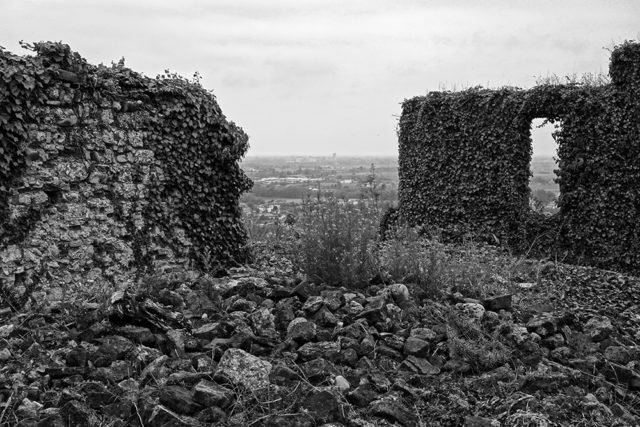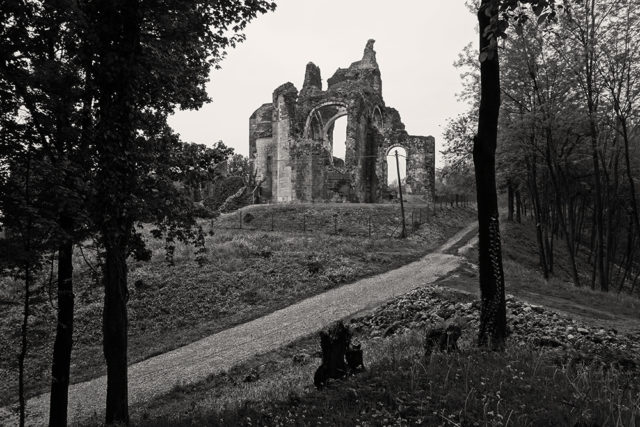There are some ruins on a slope in Nerveza della Battaglia, Italy that are all which remains of a Benedictine monastery – the Abbey of St Eustace (Abbazia di Sant’Eustachio).
In 1062, the Abbey was founded by Countess Gisla and her son Rambaldo III di Collalto on pre-existing foundations, possibly of some old Roman buildings. The Collaltos were part of the Lombard family and were highly influential local feudal lords.
Around the Abbey, the rural village of Nervaise began to develop. Over time, trade developed as goods were moved along nearby roads. The Abbey’s location also offered travelers and traders many different places to ford the river Piave, making it accessible to all.
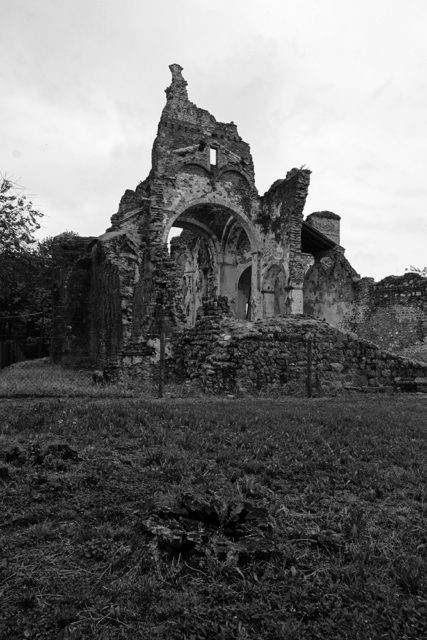
The rationale behind founding the monastery was to limit the power of the bishops of Treviso, a nearby city. The bishop had begun to expand both his religious and political power, squeezing out the influence of the Collalto family in the process.
The Abbey wasn’t very large, but it operated under the protection of the family and the direct authority of the Pope, who also disliked the bishops gaining additional power because they supported the Emperor.
The struggle between the Benedictine abbots and the bishopric of Treviso continued from the 11th century to the end of the 19th century.
By the middle of the 16th century, this religious site had gained renown as a place of meditation and inspiration, assisted by the peaceful setting of the surrounding woods. The Abbey attracted both religious individuals and other creative people, such as writers.
Guests at the monastery included Pietro Aretino and Giovanni Della Casa, and the woods surrounding the Abbey are said to have been Casa’s inspiration for his greatest work: Etiquette.
The Abbey became an important cultural center, not least because donations the Abbey received from Rambaldo IV provided it with various papal privileges and exemptions.
From 1744 to 1819, the abbey came under the direction of Vinciguerra VII of Collalto who was a very educated man. He used his position to employ experts and scholars to turn the Abbey into an important agricultural company. His efforts saved the Abbey from the Napoleonic suppressions.
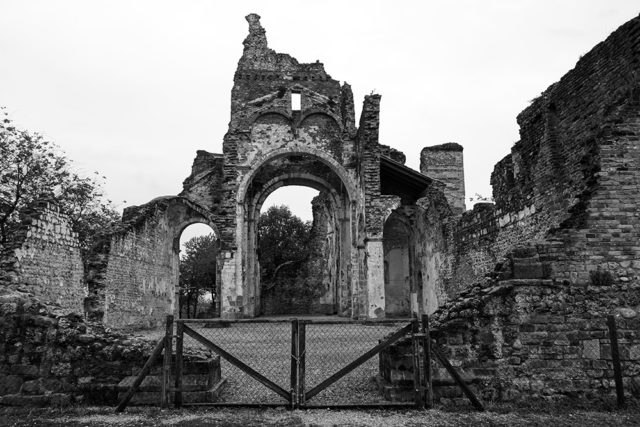
However, by the mid-19th century, the church authorities deemed this institution to be obsolete. In 1865, church authorities issued a final decree on the suppression of the abbey. In an ironic twist of fate, the title of abbot was transferred to the Collalto’s ancient rival: the bishop of Treviso.
By the end of the 19th century, the site had fallen into a state of disrepair. Local peasants began to live in the Abbey’s faded glory, using the cloister as a storage area for tools.
In World War I, after the Battle of Caporetto in December 1917, British artillery troops set up a base at the Abbey, making the building a target for the Austrian forces stationed on the other side of the Piave river.
By the end of the war, the Abbey’s buildings had been seriously damaged and the whole place fell into ruin. Not far away, the Montello Temple was built, which is dedicated to the fallen during the First World War.
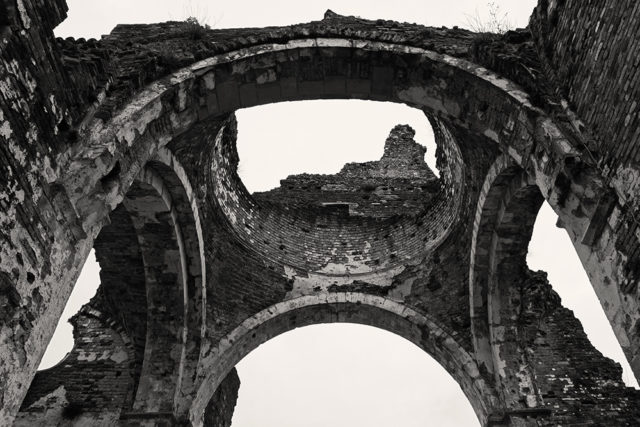
A modest restoration project partially restored the site in 1992. It focused mainly on the forest and paths through the woodland. During the works, evidence of artillery batteries left over from the war was unearthed.
In 2017, a more substantial restoration project took place, which included the renovation of the main site, including tidying up the road and graves so that the area was both safe and clean. This was completed in March 2018.
Currently, the ruins that you can see in the photographs remain as witnesses to the events that took place over the years.
The Abbey of St Eustace was once a vibrant, bustling place, famous and influential. But all that has gone now, and even the forest around the monastery has decreased over time.
A big thank you to Luigi Tiriticco for allowing us to share his amazing black and white photographs of the Abbey with our readers.
Luigi Tiriticco is the art director at FOTOlogie – an Italian website with modern photographs. You should definitely check out his Flickr account for more photographs of different types of art.
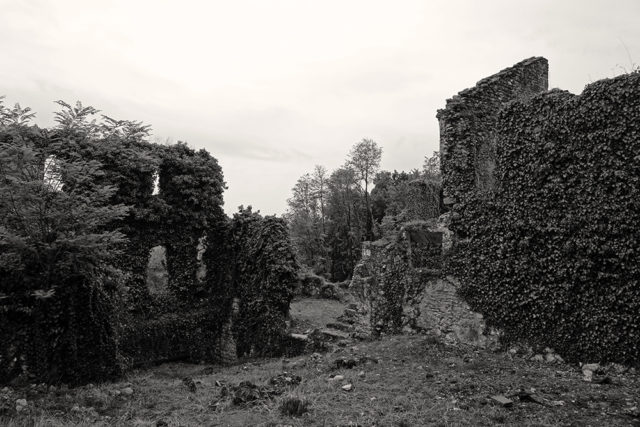
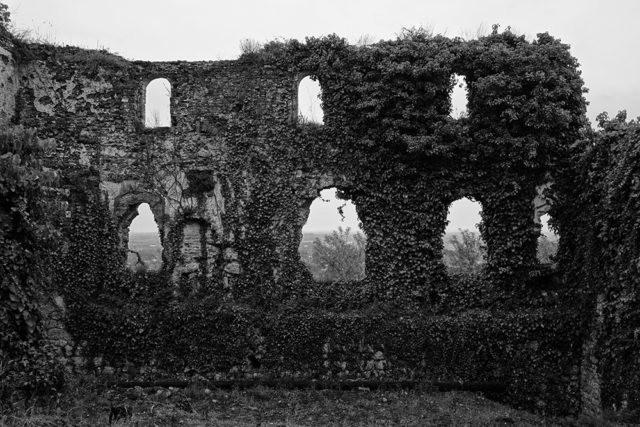
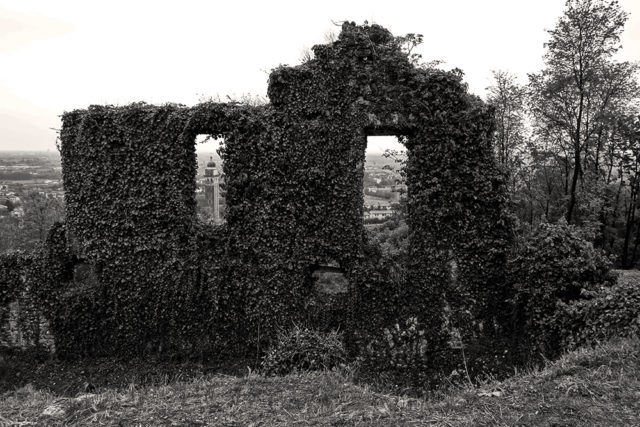
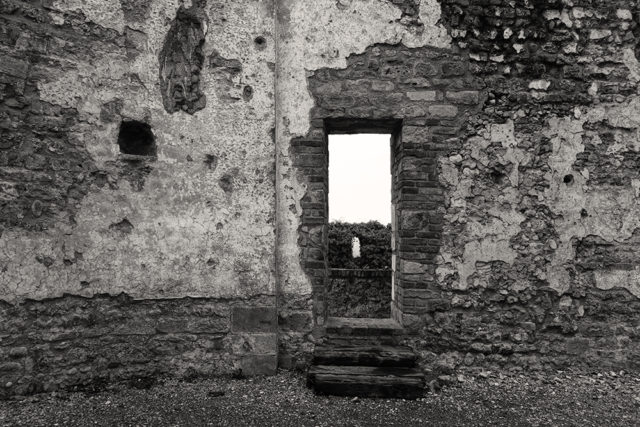
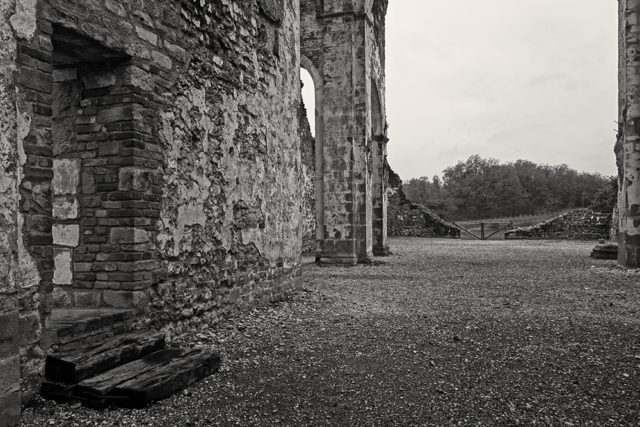
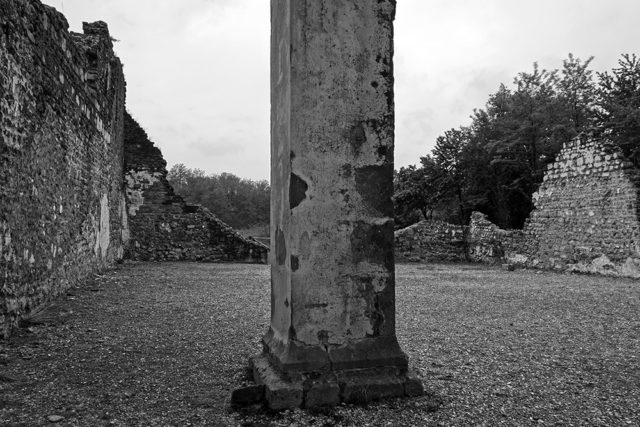
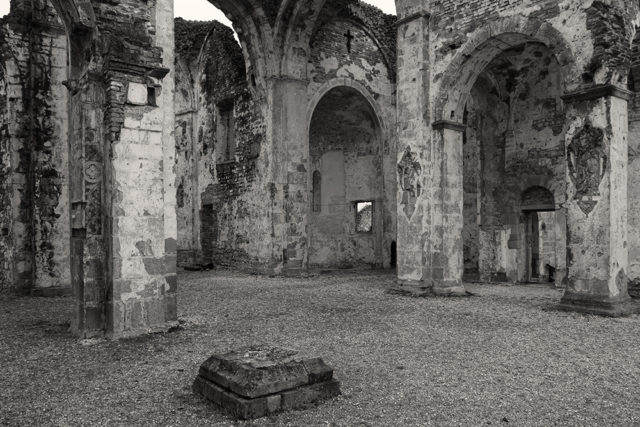
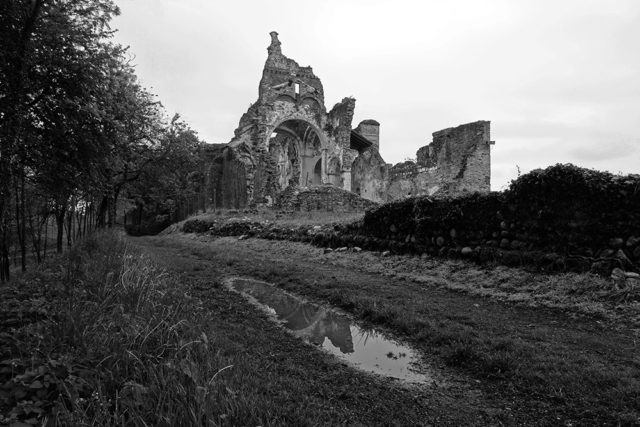
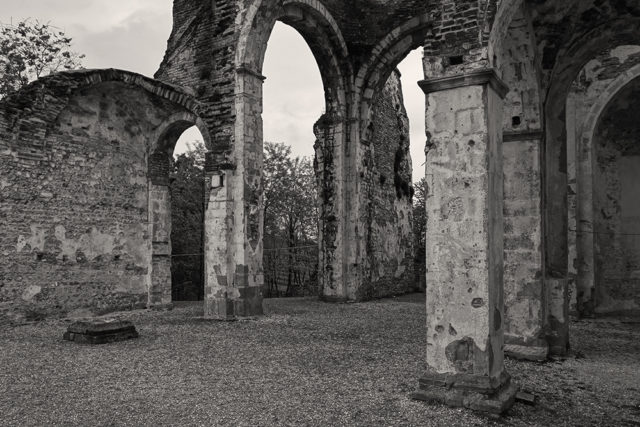
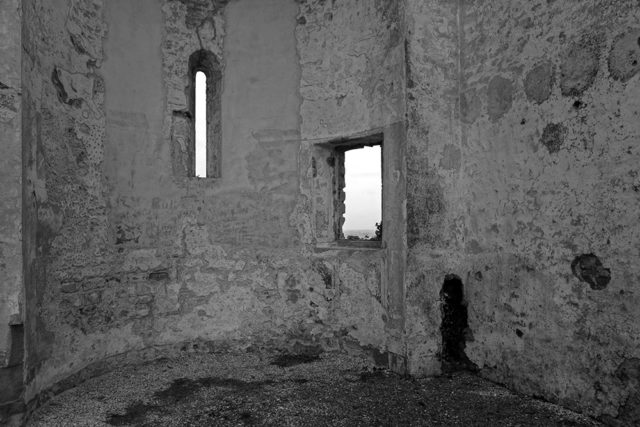
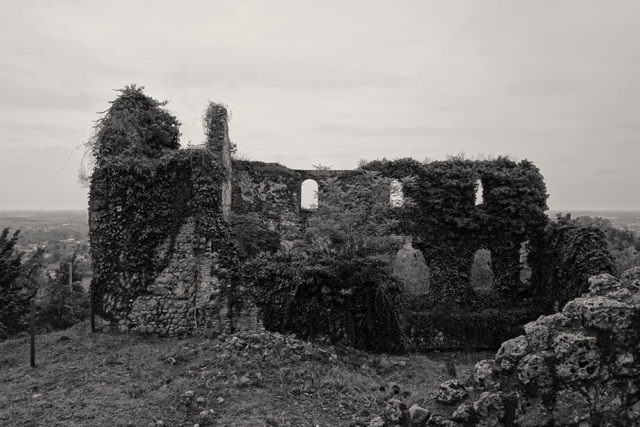
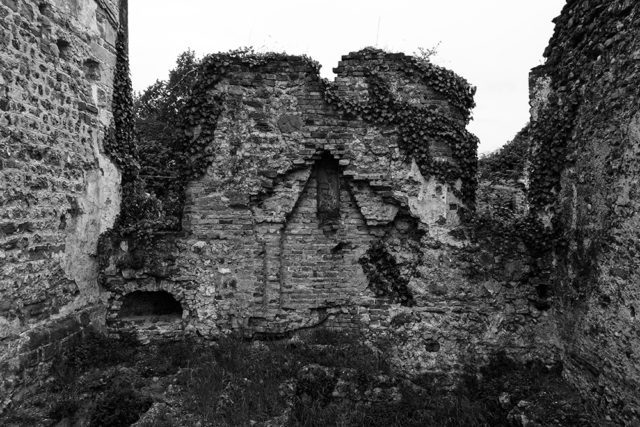
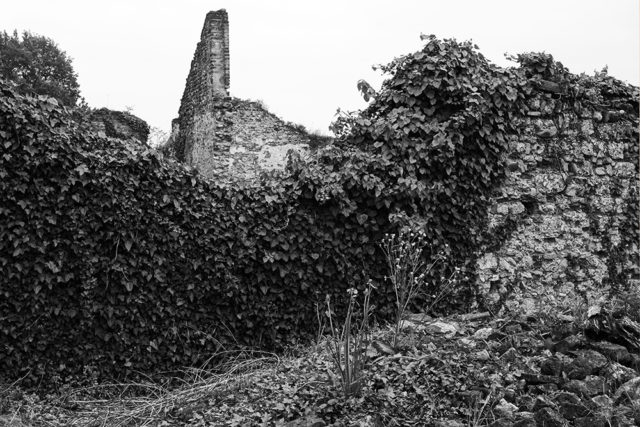
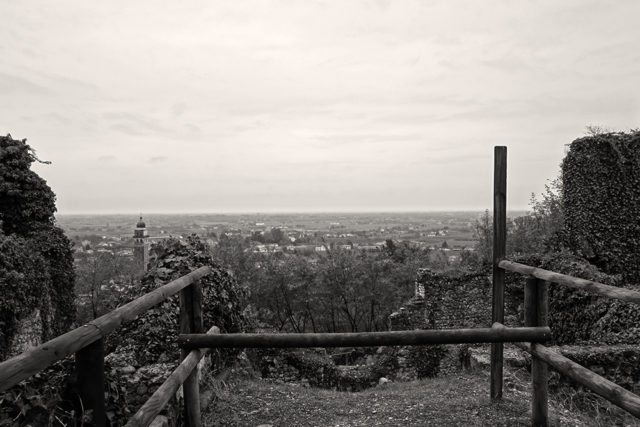
Another Article From Us: Syndenham Hospital Demolished in Baltimore, Maryland
